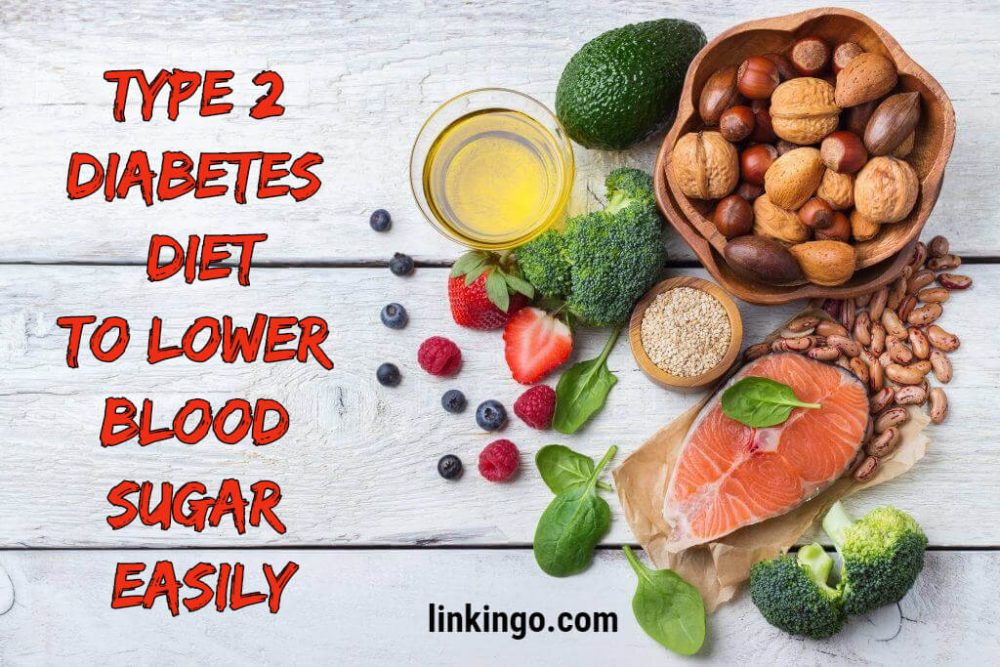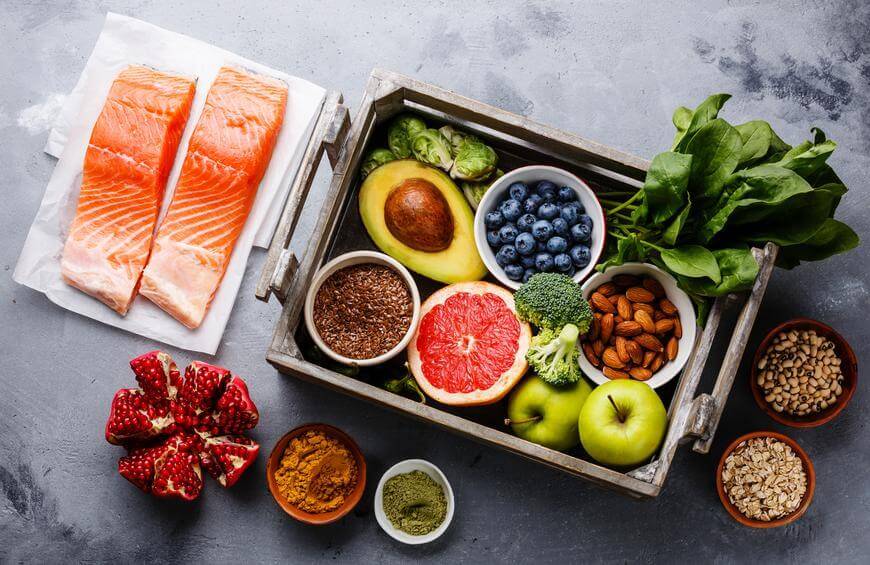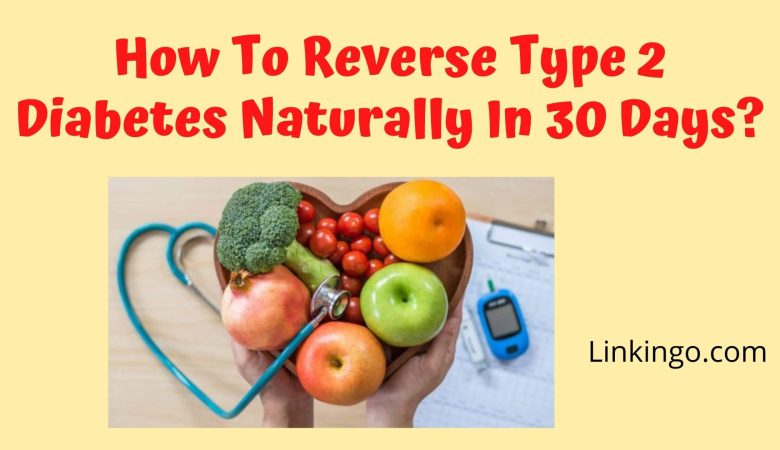Controlling blood sugar levels is the key to avoid some diabetes complications. A healthy diet will help you manage blood sugar, thereby reverse diabetes. There are many types of food, but what you should and shouldn’t eat? This article is going to point out the best and the worst foods for diabetics, then help you build a type 2 diabetes diet.
The basics of the type 2 diabetes diet
To build a healthy menu for diabetics, you need to understand the impact on the blood sugar of each type of food. Carbohydrates can break down into glucose faster than other foods. So it raises your blood sugar quickly, which is bad for diabetes. However, following a type 2 diabetes diet does not mean that you have to eliminate starches from your diet, you can still build a balanced menu by combining protein, fat, and carbohydrates.
Experts recommend that for an average person who needs 2000 calories a day, they should consume about 180 to 240 calories (45 to 60 grams) from carbohydrates. Therefore, in a type 2 diabetes diet, you should limit foods that are high in carbohydrates and replace calorie sources with foods containing protein and other healthy fats.
However, for protein and fat, although they do not directly affect blood sugar, you should only consume them in moderation to ensure safe calories.
The best and the worst foods in type 2 diabetes diet
-
Grains

You don’t need to eliminate all carbs from your diet. Whole grains contain lots of vitamins and fiber that can help enhance digestibility, thereby increasing the conversion of carbohydrates into calories. Therefore, you can control blood sugar better.
However, you have to count your carbs and eat them in moderation. Also, white starches and processed or prepackaged products often don’t contain as much fiber, minerals, and vitamins as whole grains, so you need to limit them.
The best options are brown rice, whole-grain bread, whole-grain cereal, whole-wheat pasta.
The worst options are white bread, pastries, sugary breakfast cereals, white rice, white pasta.
-
High protein foods
Protein is an essential nutrient for the type 2 diabetes diet. It helps stabilize blood sugar and control blood pressure. You should choose plant-based protein or lean protein foods, as they not only provide a healthy protein but also provide healthy fats and fiber.
You should also limit processed foods, which can cause hypertension, heart disease in people with diabetes because of high amounts of sugar, carbohydrates, and sodium.
The best options are sockeye salmon, canned tuna, walnuts, beans, legumes, tofu, yogurt.
The worst options are hot dogs, sausages, pepperoni, salami, ham, beef jerky, bacon, roast beef, turkey.
-
Vegetables are the best foods in type 2 diabetes diet

Vegetables are packed full of essential vitamins, minerals, nutrients, and fiber, which can help you convert carbohydrates into calories quickly. So, they are one of the best foods to lower blood sugar naturally.
The best options are spinach, kale, swiss chard, broccoli, cauliflower, asparagus, onions, brussels sprouts, pepper.
The worst options are white potatoes, sweet potatoes, yams, peas, beets, corn. You should add them to your menu in moderation because they contain carbohydrates.
-
Fruits
The fruit is still a useful food group for type 2 diabetes if you know how to eat them in moderation. Because fruits contain antioxidants, vitamins, minerals, and fiber, which will help you break down carbohydrates slowly. You can use fruit for snacks instead of cakes, biscuits, which are high in carbs.
However, you need to limit dried fruits because they have removed a lot of water and minerals during processing. Besides, canned fruits often contain high amounts of sugar, so you need to stay away from them.
Fruit smoothies can be good food for type 2 diabetes diet when consumed in moderation. It has better nutritional value than fruit juice, by retaining the fiber present in the fruit. You can make a fruit smoothie with yogurt or a small amount of nut butter and don’t add sugar to your snacks.
The best options are blueberries, strawberries, and raspberries, apples, peaches, cherries, oranges, kiwi, melon, bananas.
The worst options are dried fruit, packaged juices, canned fruit in syrup.
-
Fat
Not all fats are bad. Monounsaturated fats can help you lower bad cholesterol and control cravings effectively [1]. So you can control your blood sugar well if you know how to add healthy fat to your type 2 diabetes diet.
However, saturated fat and trans fat can harm your heart by increasing your cholesterol. You can find it in products that contain hydrogenated oils, such as packaged foods, baked goods, and cookies. Therefore, you should review the sources of fat entering the body carefully.
The best options are avocados, nut butter, olives, edamame, soybean oil, corn oil, olive oil, sunflower oil, salmon, tuna, tofu.
The worst options are fast food, beef, veal, lamb, pork, coconut, palm oil, packaged snacks, processed sweets.
How to create a type 2 diabetes diet plan?
Breakfast: you shouldn’t skip breakfast because it helps control blood sugar throughout the day. The menu for breakfast needs to have a balanced diet: ½ carbs, ¼ fruit, and ¼ protein.
Lunch: diabetic lunches should include ½ starchy greens, ¼ starch rations, and ¼ protein.
Dinner: the diabetic dinner menu is similar to the lunch portion: ½ non-starchy greens, ¼ starch ration, and ¼ protein.
Snack: maintaining small meals throughout the day helps you stabilize your blood sugar levels. You should avoid packaged, high-fat, and gelatin foods in your snacks.
Sample menus
The following ideal type 2 diabetes diet will provide about 1,200 calories a day.
- Menu 1:
Breakfast: two slices (100 g) toasted sweet potato, 1 cup (100g) cooked oatmeal, spinach, and 1 tsp sprinkled flaxseed.
Lunch: half a cup chickpeas, a quarter cup chopped tomatoes, two regular slices high-fiber whole grain bread, 1 oz cheese.
Snack: 1 cup low-fat plain yogurt mixed with half a small banana.
Dinner: 2 oz salmon filet, a two-thirds cup of quinoa, one kiwi.
- Menu 2:
Breakfast: Chocolate peanut oatmeal, 1 cup strawberries, 1 cup unsweetened almond milk.
Lunch: a one-third cup brown rice, half a cup chickpeas, 1 cup sliced tomato, half a medium apple.
Snack: 1 cup celery.
Dinner: one medium baked potato, 1 cup cooked bok choy, 1.5 cups steamed asparagus
- Menu 3:
Breakfast: three-quarters cup blueberries, 1 tbsp chia seeds, whey protein powder.
Lunch: two corn tortillas, 3 tbsp salad dressing, 2 oz broiled beef.
Snack: half a small avocado with 2 tbsp hummus.
Dinner: 3 oz boiled shrimp, 1 tbsp butter, 1.5 cups steamed broccoli, one medium baked potato.
Conclusion
People with diabetes should consider some factors when planning a type 2 diabetes diet. You should use healthy foods and control the calories in each of your meals. Also, limit your intake of foods high in carbohydrates that can increase the blood pressure I’ve listed above. If you find the above information useful, please leave a comment to let us know.







